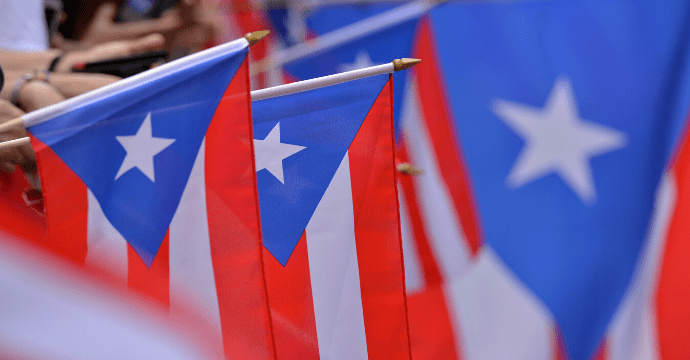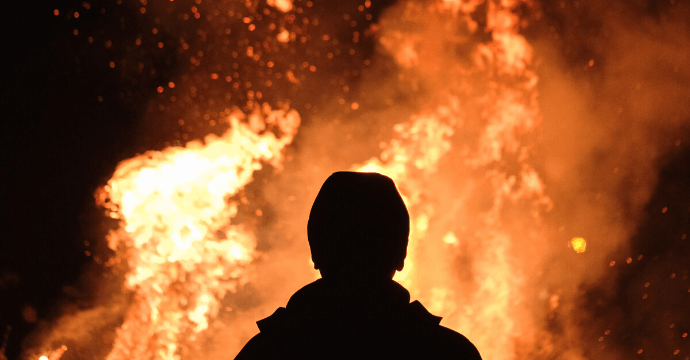New Year’s Celebrations Around The World

Tis’ the season to prepare for the New Year’s onslaught of boozy parties, 12 o’clock kisses, and the yearly butchering of Auld Lang Syne. For us, engaging in these yearly traditions is done without a second thought, but how do other New Year’s celebrations play out around the world? Yes, getting on the sauce is a common theme throughout, but other countries have a range of quirky ways to accompany the drinking. Here we bring you five culturally unique takes on New Year’s celebrations.
Table of Contents
New Year’s celebrations around the world
The Philippines: food for thought

New Year’s celebrations in this country of over 7,000 islands largely boil down to what’s on your plate. In the Philippines, many believe the texture and even shape of food determine your fortunes for the New Year. For instance, locals wouldn’t dream of ending the year without eating pancit (long noodles). Originally introduced by Chinese settlers, this delicious dish is said to bestow good health and long life upon the eater. Additionally, if you fancy keeping your family bond nice and strong just grab a bowl of sticky rice. Also, don’t forget to accompany those carbs by surrounding yourself with circular fruits; Filipinos maintain that they are extremely fortuitous. However, avoid chowing down on fish or chicken, as they apparently symbolize hard times and a scarcity of food. And I thought choosing between a sausage roll or scotch egg from the buffet was complicated.
Russia: drinks filled with desire

For many across the world, the New Year comes with healthy promises to offset a month of gorging on mainly salt and sugar, and of course the festive boozing. Russians, however, carry on the party for another month. In January it is estimated that over 1.5bn litres of alcohol is washed down the hatchets of our revelling northern neighbours. On average, winters pack a bone-chilling punch of minus 15º. So along with extra layers, it seems Russians rely on vodka, champagne, and anything else alcoholic to warm their cockles.
Nevertheless, festive tipple doesn’t only battle the chilly temperatures, it also brings good luck. A New Year’s tradition is to write your wishes on a piece of paper, set it alight, and then drop the ashes in a glass of bubbly. The champagne is then knocked back along with your burnt desires at the strike of midnight. We gather that the number one wish of most Russians is a soft February hangover.
Why not drink in the imperial charms of Russia on one of our multi-centre holidays?
Puerto Rico: start the year with a splash

Like many others, Puerto Ricans celebrate the New Year with close friends and family. Saying that, there is one tradition that is unique to this tropical island: throwing water out of your window to wash away bad spirits. If you’re lucky enough to find yourself on its spectacular coastline on New Year’s Eve, do as the locals do and fall into the waves at the stroke of midnight. Islanders guarantee this is the only way to ensure a fresh start for the next 12 months.
Ecuador: let it burn

Our next addition to New Year’s celebrations around the world takes us to Ecuador. Superstition seems to be rife at this time of year, and this South American country is no exception. For instance, most Ecuadorians wouldn’t dare to welcome in the year without slipping a dollar in their shoe and leaving it overnight. The following day the note gets quickly placed in a wallet and sits there all year. This, apparently, guarantees a wealthy 12 months ahead.
Ecuadorians also love celebrating the new year with a roaring bonfire and Monigotes (large dolls), which are prepared weeks beforehand for street pyres. As soon as darkness descends on the 31st, smoke fills the air and locals hurl bangers into busy streets. Many people place messages inside the effigy before burning it. These feature bad events or unpopular figures (usually politicians) from the past year. Once the monigote is ablaze, locals line up to leap over the fire – a tradition that goes back to their Andean ancestors.
Another tradition/minor scam that has become custom is the paying of tolls. Throughout Ecuador troupes of young children close roads, sometimes with chains or ropes, and demand a fee from those wanting to pass. Not a bad racket.
Spain: it’s all about the grapes

As the countdown to midnight on New Year’s Eve begins, revellers across Spain pack into plazas or living rooms clutching green grapes. The aim is to then gobble down twelve grapes in the last ten seconds of the year, why? For luck of course. It is believed that each eaten grape brings one month of good luck. Saying this, swallowing more than one grape per second is no mean feat, and often results in hilarity; especially with foreigners giving it a go for the first time. After, you mustn’t forget to use your right foot for your first step in the New Year. Not doing so is considered back luck, and would mean you nearly choked on twelve grapes for nothing.







Comments are closed.